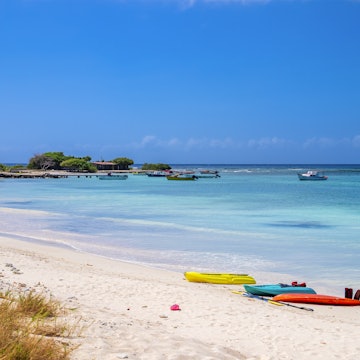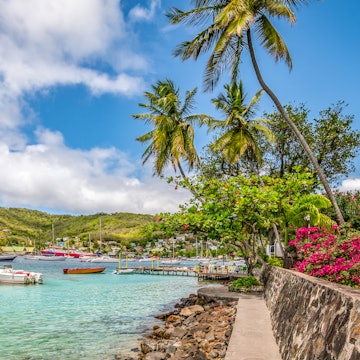
A guide to Grenada, the Caribbean's festival island

Oct 22, 2025 • 9 min read
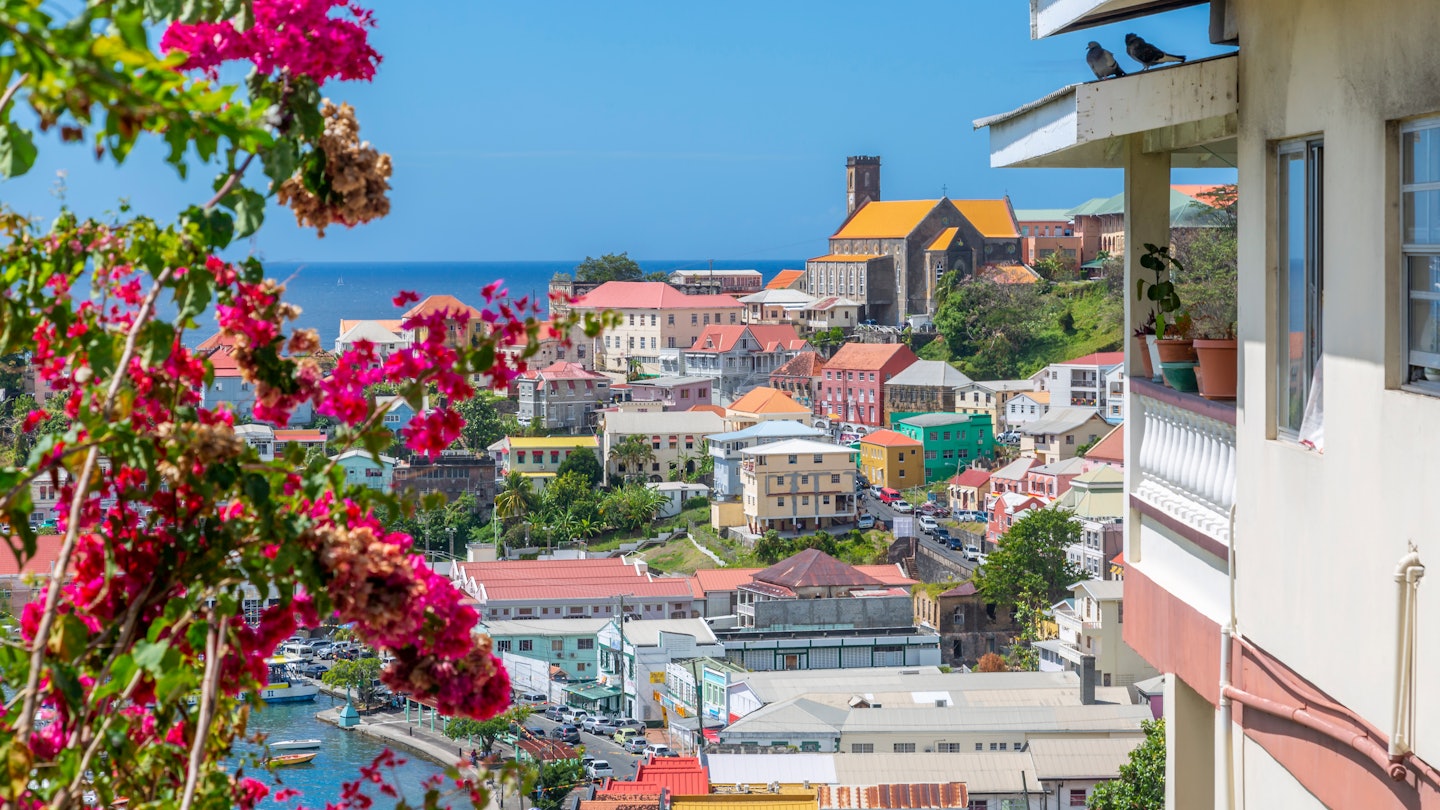
Elevated view of the Carnarge of St George's, Grenada. Frank Fell Media/Shutterstock
For travelers who haven't explored the Caribbean yet, picking a destination can be daunting. But Grenada – a beautiful island roughly 100 miles north of South America, between the Atlantic Ocean and the Caribbean Sea, should be high up on your list.
Nicknamed the "Spice Isle" because of its abundant aromatic spices such as cinnamon, nutmeg, mace, clove, bay leaf, turmeric and ginger, Grenada is also known for its fertile volcanic soil, mountainous terrain, rainforest, and waterfalls. Start planning your trip now with this comprehensive guide containing everything you need to know about visiting Grenada.
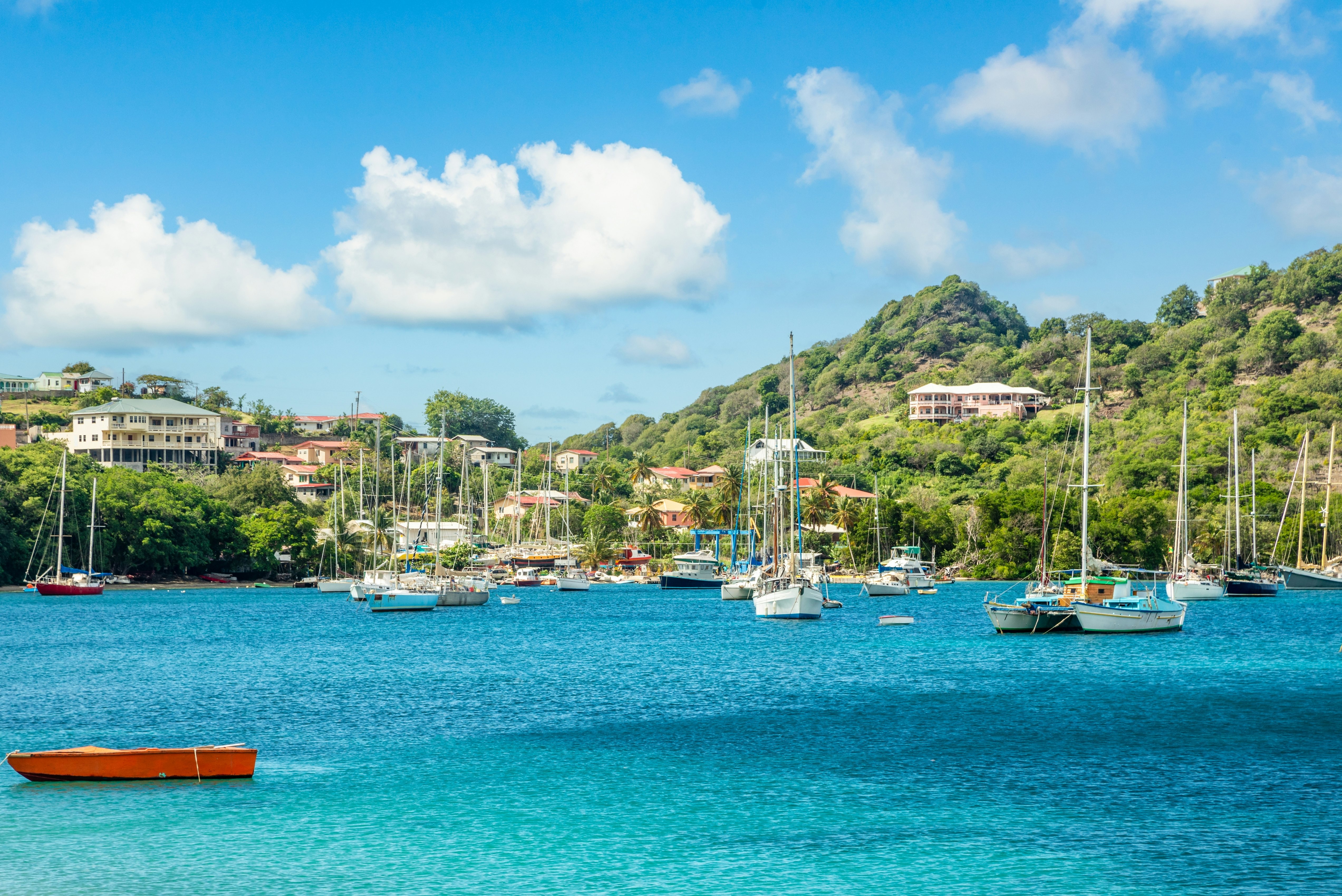
When should I go to Grenada?
Officially, Grenada spans 133 sq miles and comprises three islands: Grenada, Carriacou (13 sq miles) and Petite Martinique (0.92 sq miles). Reaching these islands involves a 90-minute boat ride or a 20-minute flight from the mainland.
For the best sailing experience in Grenada, plan your trip between October and June, which is considered peak sailing season. You'll enjoy a steady breeze, milder temperatures and calm waters – perfect conditions for Pure Grenada Sailing Week when it kicks off in January.
There are two seasons in Grenada. A dry season (October to June) when the island receives less rainfall and a wet season (June to November), so don't forget to pack an umbrella just in case. June through November is also hurricane season for the Caribbean.
For party lovers, there’s no better time to visit than around the carnival season known as Spicemas. The festive season officially starts in May, with concerts, parties and pageants all leading up to its finale in August, highlighted by masqueraders in grand, vibrant costumes celebrating in the streets.
How much time should I spend in Grenada?
Visitors should plan to stay for at least a week to fully enjoy all that the island has to offer. Start the first day or two days in St George's, one of the Caribbean's most elegant capitals. It's a pleasure to explore on foot, with bustling narrow streets, sprinkled with elegant buildings. Then, plan some days for beaches and exploring the small islands that make up the country. Slow down and follow the gentle pace of island life without rushing around to pack everything into a few days. You're on Grenada time now.
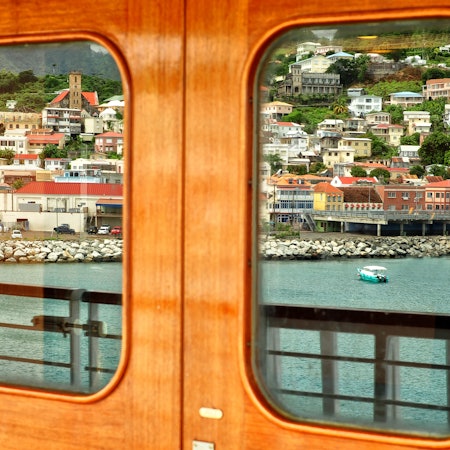
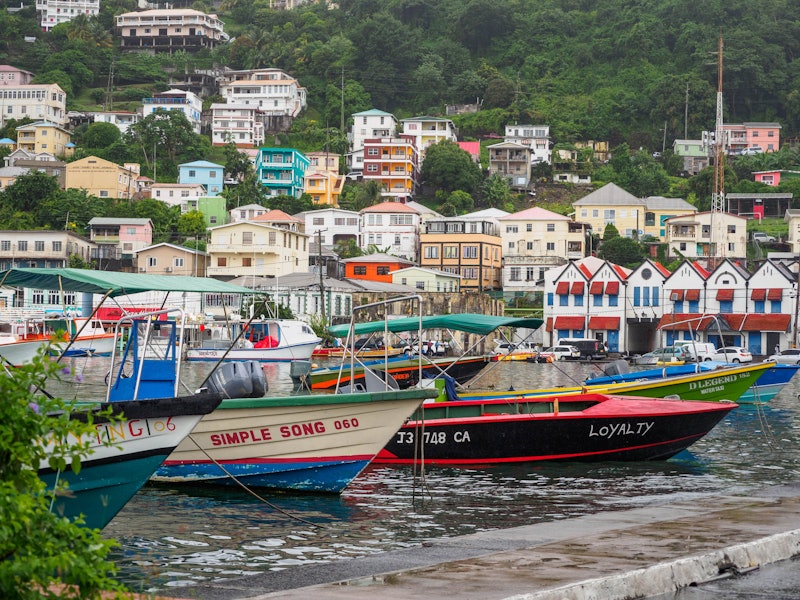
Is it easy to get in and around Grenada?
Thanks to a host of airlines offering direct flights from major destinations around the world, it’s easy to get to Grenada.
After clearing immigration, I highly recommend booking a taxi using the local ride-share app Haylup. You can also find taxis operating outside the airport. The fares vary depending on your destination, typically from EC$60 to EC$100 Eastern Caribbean dollars (US$22 to US$37) for a one-way trip.
For something more personal, contact Delon Charles, owner of Real Grenadian Taxi and Tours, which also provides curated guided island tours. There's also public transportation around the island. It's cheaper (EC$2.50; US$.90), but it's limited and unreliable, particularly on the weekends.
Both vehicle hire and taxis are fairly expensive in Grenada so mastering the local bus system is not only a great way to immerse yourself in Grenadian culture but can also lower costs significantly. It’s usually possible to pay bus drivers extra to deviate a little from their path.
Top things to do in Grenada
First-time visitors should seek out the experiences that make Grenada unique, going beyond the surface to discover the island’s true character. Our top tips are about finding out what makes Grenada special rather than skimming the surface as a tourist.

Plan your visit around Spicemas
Spicemas is essentially a five-month celebration that begins in April with numerous parties, music competitions and parades. It gradually builds up to a mammoth celebration in the first two weeks of August when soca music blares through sound systems across the island. Lonely Planet's destination editor for the Caribbean, Alicia Johnson, traveled to Grenada for Spicemas and found out first-hand why the event is so infectious.

Meet your new travel partner
Get unlimited data while you travel with Holafly eSIM. Peace of mind and no hidden fees wherever you go.
Make the time to visit Carriacou and Petite Martinique
Take a trip aboard the Osprey ferry service, which costs EC$160 (US$60) for a return tripto Grenada's sister isle of Carriacou, it's the second-biggest island in the country and is home to many of its best beaches but not a single resort. It has population of just over 9000 people.
While it may be far smaller than the main island, Carriacou punches well above its weight when it comes to beaches, with many of Grenada’s best bathing spots found within walking distance of the main town of Hillsborough or just a short boat ride away. Easily the island’s most famous beach, the appropriately named Paradise Beach features a long stretch of soft sand backed by palms and sea-grape trees. Photographs can't do it justice.
Right in front, Sandy Island is a dreamy, uninhabited, and roughly banana-shaped reef islet. This tiny slice of sunseeker utopia, 1600ft long and just 165ft across at its widest point, is a popular day-trip destination. There’s good snorkeling right off the beach but most just come here to relax and paddle in the warm, tranquil waters. Bring drinks and plenty of snacks.
Interested in a vacation off the beaten path? Consider a trip to the island of Petite Martinique, a picturesque place with a few charming accommodation options such as Millennium Connection Guest House. This guest house also features a quaint museum downstairs, showcasing traditional artifacts that tell the story of the island’s traditional way of life. Be sure to visit it.
While Carriacou is normally the most chilled of islands, there’s one week a year when it is anything but. Held just before the beginning of Lent, the Carriacou Carnival is five days of mayhem that sees what seems like half of Grenada descend on the island to party. It builds to a crescendo on Jouvert morning at dawn when, after partying all night, revelers parade through the streets, with many covering themselves in black oil and donning horned helmets. But for many the highlight of the carnival takes place the next day with the quirky Shakespeare Mas, where brightly costumed men meet on crossroads across the island to recite lines from the Bard of Avon at each other in a battle of literary knowledge.
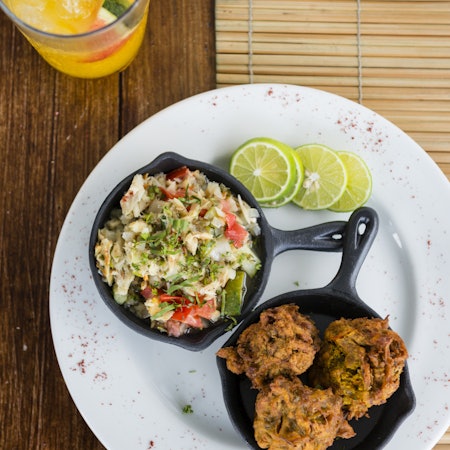
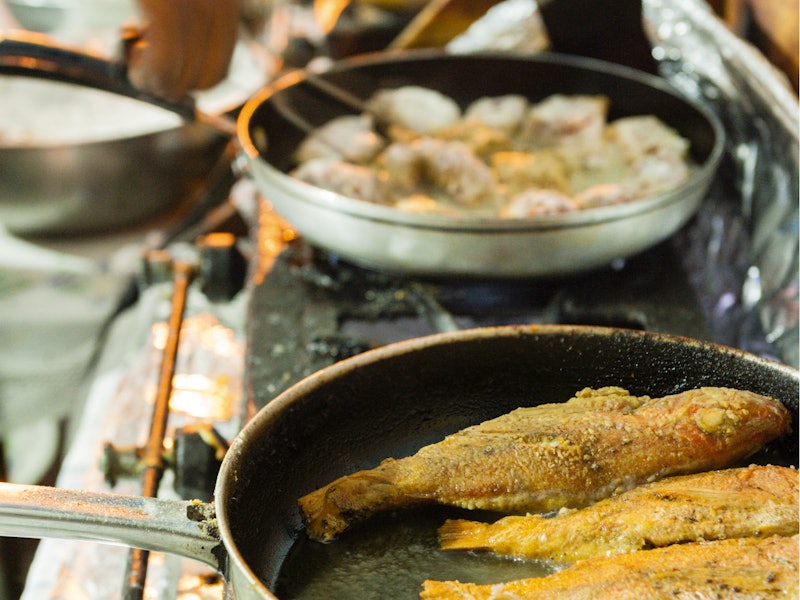
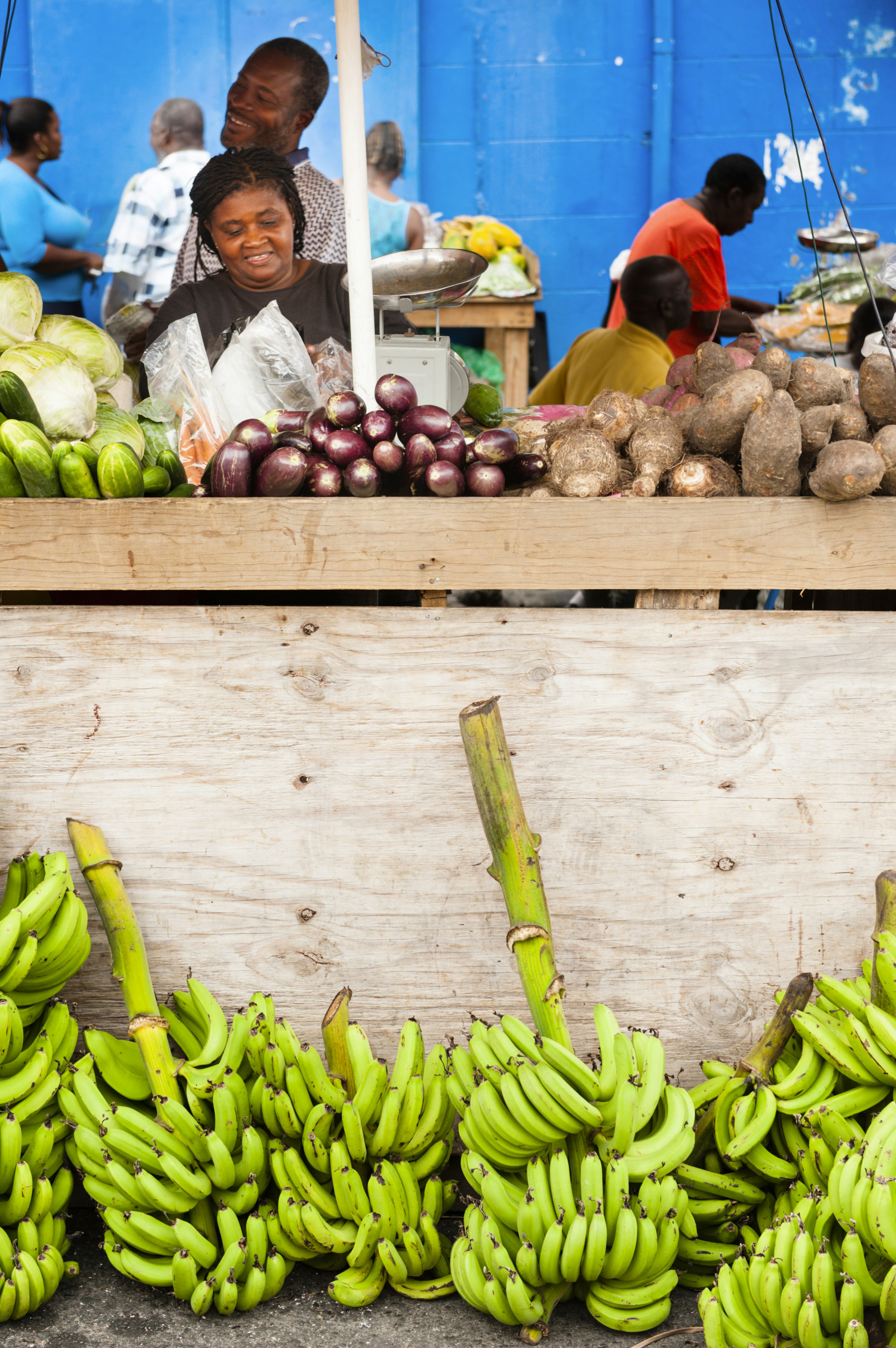
Take a foodie tour around the island
Grenada is experiencing a cultural revival, particularly in its culinary traditions, with a focus on farm-to-table practices.
Delve into Grenadian cuisine by reserving a spot on the Spice Foodie Tour. Curated by Rosana John-Mitchell, a passionate food enthusiast and blogger known as Radikalrose, this tour takes you around the island to sample the best of its cuisine and culture.
You’ll visit local hotspots such as Mt Moritz West Indian Breakfast for a traditional Grenadian breakfast, Boogie b D Buss Up Shot Joint in Grenville for a locally made curry dish called "buss up shut" and the Soubise Seafood Festival, held every last Saturday of the month.
Before you leave, try our traditional dish, called oil down, a delicious stew prepared with flavorful seasoned meats, breadfruit, green bananas, callaloo, turmeric, coconut milk and other ingredients.
Learn about Grenada's turbulent history
The French and British fought over Grenada until the island was occupied by the British in 1783. Tourist attractions like Ft George, Ft Matthew, Ft Frederick and the cannons still pointing toward the sea, serve as reminders of the historical struggle.
Visiting these sites will give you an insight into the oppression suffered by Grenada's people and their journey to becoming an independent state in 1974.
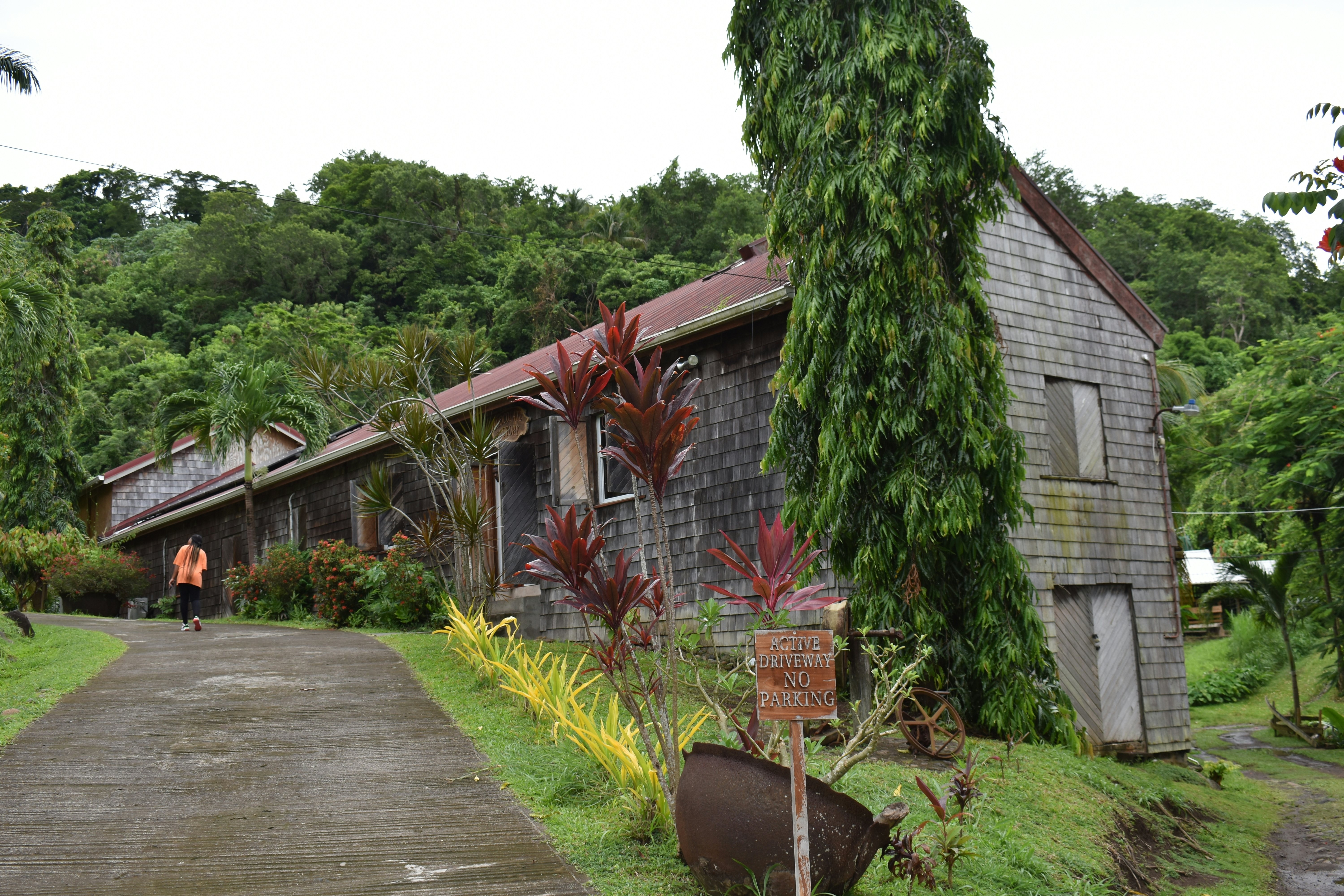
Experience a sweet sensation at Belmont Estate
The Belmont Estate in St Patrick (about 60 minutes from popular St George's) is a 300-year-old functioning agricultural estate established in the 17th century. If you're a lover of organic chocolate, it needs to be on your tour schedule.
The tour dives into the estate’s history, including its dark past of enslavement and indentureship, the transfer of ownership over time and its current focus on sustainable agricultural and manufacturing techniques.
One of the best experiences is the Tree-to-Bar Chocolate Tour, immersing visitors in the daily activities of the estate.
With the help of a tour guide, guests can observe the process of growing cocoa seedlings and participate in the harvesting process, including cracking open the pods, gathering the beans, and tasting fresh cocoa beans. Visitors will see where the beans are fermented and dried to see the complete process of making chocolate bars.
Make your own chocolate at Tri Island
The Tri Island Chocolate Factory is located in St George's, and visitors can enjoy a more personal chocolate-making experience by creating their own chocolate bar. Learn the journey from cacao tree to finished product on a single visit. Rates start at EC$124.50 (US$46).
Toast your first visit at River Antoine Estate
Located on the island's northeast coast in the parish of St Patrick, River Antoine Estate is the oldest rum distillery in Grenada. Running on hydropower since 1785, River Antoine uses pure cane juice to manufacture the spirit. Other factories around the island import an extract to make their rum.
Among the island's diverse range of local rums, River Antoine Estate Rivers Royale Grenadian Rum is one of the best-kept secrets. Why not take a bottle home to keep the holiday spirit alive?
Discover the island's wildlife and natural landscape
If you're a rugged backpacker who loves to explore nature, then the Grand Etang National Park is the perfect spot for you. Here visitors can witness nature at its purest, view the 36-acre Grand Etang Lake, take selfies and watch the world-famous mona monkeys scamper about.
If you plan on chasing waterfalls, the best options include Annandale Waterfall, Seven Sisters and Mt Carmel Waterfalls. While you're visiting, take advantage of the opportunity to discover Mt Saint Catherine, the highest point on the island at approximately 2756ft.
If you're up for a physical challenge, head to the Welcome Stone in the north of the island, believed to be Grenada's best lookout point.
Reaching the location demands hiking up a steep incline and traversing through a dry forest. The effort will be worth it when you witness the stunning panoramic view of Bathway Beach and Levera Beach.
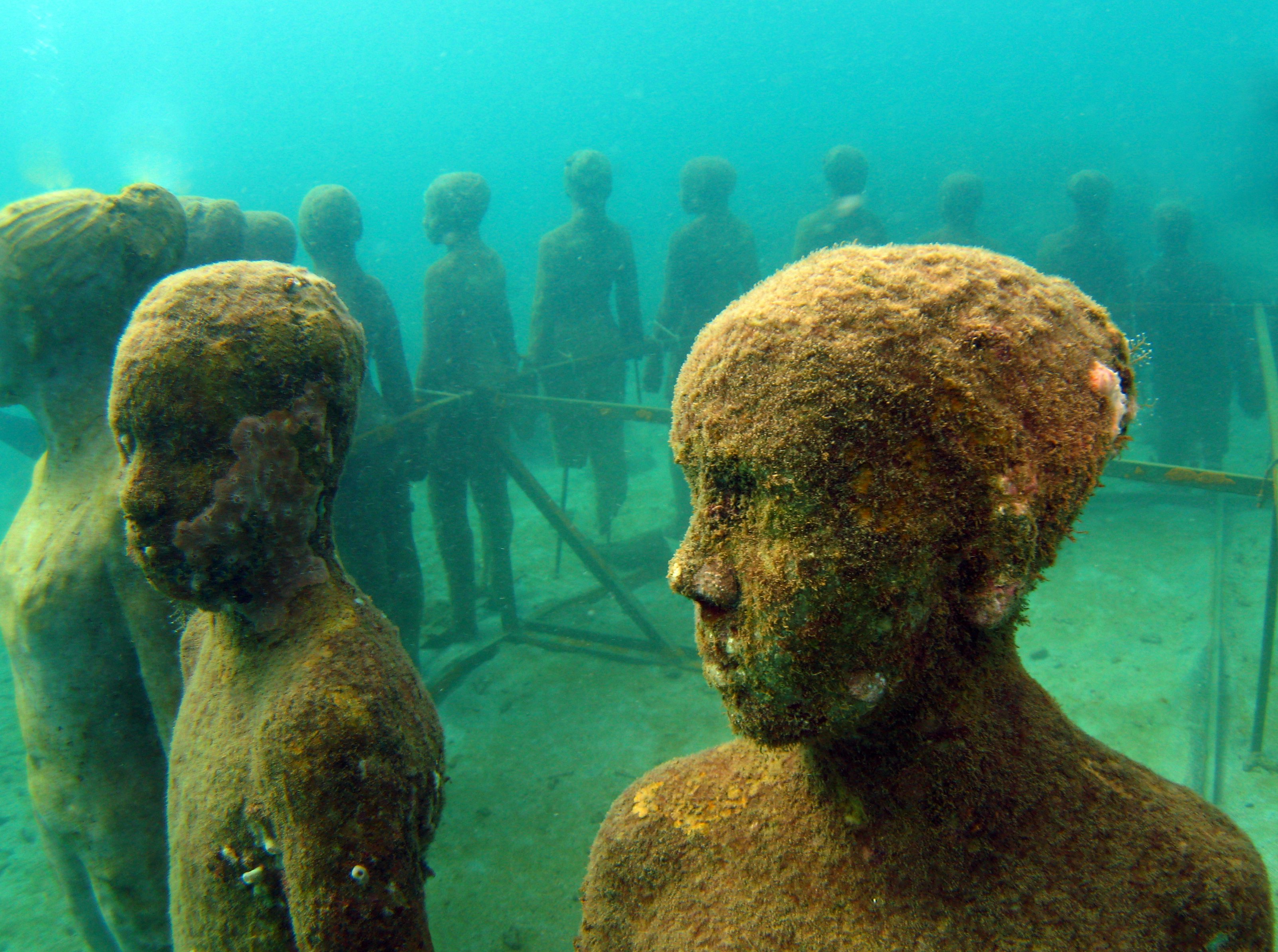
Dive into the Molinière Underwater Sculpture Park
The Underwater Sculpture Park in Molinere Bay is a must-visit for those who adore the ocean. Visitors can marvel at the nearly 100 works of art, including Coral Carnival, which highlights the beautiful connection between art, culture and marine conservation. The sculptures were created by British sculptor Jason deCaires Taylor and a few local artists.
No diving skills are necessary to fully explore them; snorkeling is fine, thanks to clear bay waters. You must book a trip through a local PADI dive shop like Eco Dive, Aquanauts Grenada or Dive Grenada.
How much money do I need for Grenada?
Travelers from the United States, Canada, the UK, or Europe will benefit from a favorable exchange rate when converting their currency into Eastern Caribbean dollars.
Accommodations: EC$540 (US$200)
Restaurants: EC$45 to EC$135 (US$17 to US$50)
Public transportation: EC$2.70 to EC$5.70 (US$1 to US$2.11)
Private taxi service: EC$173 (US$64)
Rum punch: EC$13.50 to EC$19 (US$5-US$7.03)
Cup of coffee, cocoa or tea: EC$5.40 to EC$13.50 (US$2 to US$5)









